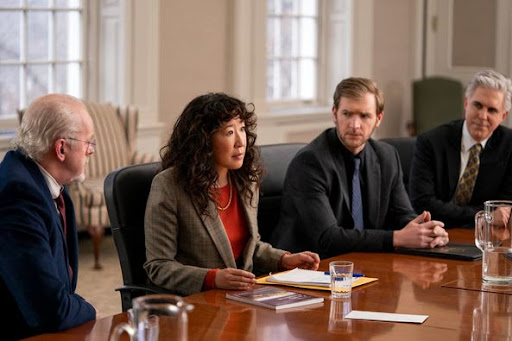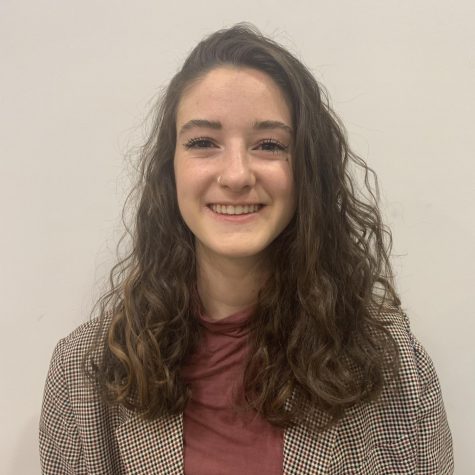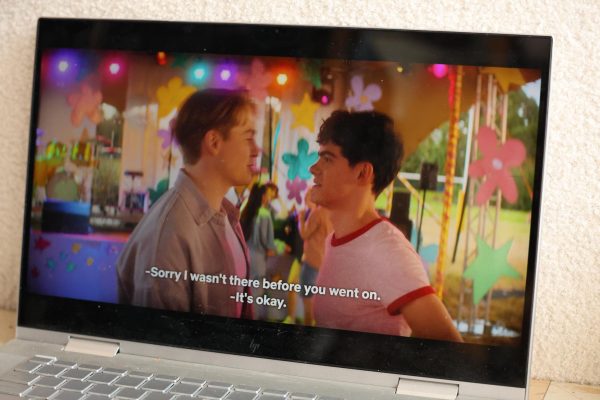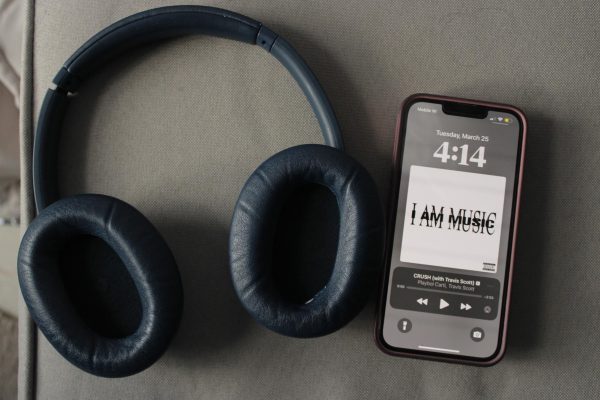“The Chair” Explores the Culture of Higher Education

The Netflix original series “The Chair” explores the culture of higher education through the fictional Pembroke University. (Courtesy of Facebook)
Pembroke’s campus — the fictional university featured in Netflix’s original series “The Chair” — looks eerily like Fordham. Brick buildings sit atop sloping hills and office spaces are walled in dignified wooden paneling.
However, the most profound similarities lie elsewhere. “The Chair’s” portrayal of complex discourses, university life and scandal made the college experience I watched on screen nearly identical to the one I’m living.
The series stars Jin-Yoon (Sandra Oh) who is navigating her new role as Pembroke’s first woman chair of the English department. We meet her layered in tweed, wearing a satisfied smirk as she sits at her desk for the first time. While initially buoyed by the significance of her accomplishment and plans to revamp the department, Jin-Yoon is quickly weighed down by its age — literally.
She explains that the department, comprised almost entirely of much older white men, is struggling to meet enrollments and in a broader sense struggling to entice the evolving interests of Gen Z. The challenges ahead are perfectly foreshadowed when, during her department-meeting speech about “out tech-addled culture,” one near-senile colleague asks if his pill is green or brown. The professor then proceeds to take it anyway; “In a couple minutes we’ll know if that was right,” he says.
This clash between established university norms and a more progressive world continues to occur in “The Chair.” The results are most often hilarious, sometimes uncomfortable and always reflective of the current college experience. In one scene, a tenured faculty member Dr. Rentz (Bob Balban), is lecturing alongside the hip, young professor “Yaz” (Nana Mensah). The nasally Rentz is droning on about Melville’s “Moby Dick” when a student interrupts: “Aren’t we going to talk about how Melville was a wife-beater?” During Yaz’s lecture the students, rowdy and excited, create a song about the misogyny in Melville’s work. Rentz looks on from afar with tears in his eyes. Yaz has her thumb on the pulse of Gen Z while Rentz mourns his glory days.
Despite this criticism of stuffy institutions, the show intentionally avoids sending a clear cut message about the correct path forward. In fact, even though Jin-Yoon desperately wants to modernize the English department, she fights to save her colleagues from forced retirement.
The plot line of beloved professor, Bill Dobson (Jau Duplass), also serves as somewhat of a warning about the dangers of the new age. Dobson, distraught after the death of his wife, is in a state of disarray. He shows up to work drunk, sleeps in Jin-Yoon’s office and on one occasion, accidentally plays a video of his deceased wife breast feeding on the projector. His fall from grace culminates when, during a lecture on absurdity and fascism, he hails Hitler.
A video of the gesture is quickly disseminated around campus and the fallout snowballs. Dobson, standing by the irony and intellectualism of his actions, is not quick to apologize. He hosts a town hall with students where his failure to understand the current political climate is perfectly depicted. “The university should be a place to uphold free discourse — the exchange of ideas without fear,” he argues. “Yeah, it’s all about free speech as long as you’re the one talking,” an attendee retorts.
While the students of Pembroke are outraged and inhibit a nuanced discussion, their anger transcends Dobson and Pembroke all together. “Why should they trust us when the world is burning?” Jin-Yoon asks at one point.
The show’s ability to create a sympathetic picture of Dobson, the students, Jin-Yoon and the older male professors simultaneously is a profound one. Dobson is justified in feeling a strain on free speech and Jin-Yoon is justified in feeling unsupported as a female faculty member of color.
The old professors are saddened by the emergence of a world that no longer celebrates them and the students are deservedly angry about their limited financial opportunities, mounting debt and uncertain future.
The only true enemy of the show is Dean Larson, who fights only for Pembroke’s reputation and, by extension, its endowment. His concerns are “killing the story” and “not exacerbating things on campus.”
Perhaps the message of “The Chair” is that a university cannot and should not be managed. University life will always come with anger, discourse and change — this is merely evidence of a college with a pulse.

Editor in Chief for Volume 103
Culture Editor for Volume 101, Volume 102.
Rachel Gow is a junior at Fordham College at Rose Hill, majoring in Journalism...












































































































































































































